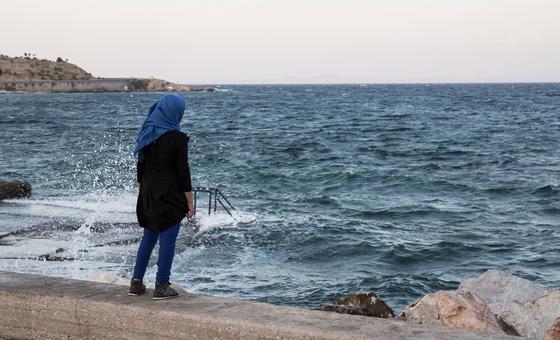Duty to rescue people in distress
In a joint statement, refugee agency UNHCR and migration agency IOM, said that the duty to rescue people in distress at sea without delay was a “fundamental” rule of the international maritime law.
They underscored that the current approach to Mediterranean Sea crossings – one of the world’s most dangerous and deadly migration routes – was “unworkable”.
According to figures released by the IOM on Tuesday, last year 3,800 people died on migration routes within and from the Middle East and North Africa – the highest number since 2017.
The recent tragedy adds to the gruesome statistics. While the number of people aboard the boat is still not clear, it is believed to have been somewhere between 400 and 750.
The boat was reportedly in distress as of Tuesday morning. A large-scale search and rescue operation was announced by the Hellenic Coast Guard on the morning of 14 June, after the vessel capsized.
UN support continues
UNHCR and IOM representatives have been on the ground in Kalamata in southern Greece working with the authorities to provide support and assistance to survivors.
These include non-food items, hygiene kits, interpretation services and counselling for survivors.
The agencies said they welcome investigations underway by Greek authorities into the circumstances leading up to the disaster.
‘Unworkable’
“It is clear that the current approach to the Mediterranean is unworkable. Year after year, it continues to be the most dangerous migration route in the world, with the highest fatality rate.
“States need to come together and address the gaps in proactive search and rescue, quick disembarkation, and safe regular pathways,” said Federico Soda, IOM Director for the Department of Emergencies.
UNHCR called on the European Union to put “safety and solidarity at the heart of its action in the Mediterranean”.
Assistant High Commissioner for Protection Gillian Triggs said in view of increased migrant numbers, “collective efforts, including greater coordination between all Mediterranean States, solidarity, and responsibility-sharing, as reflected in the EU’s Pact on Migration and Asylum, are essential to save lives.”
The agency continues to advocate for the establishment of an agreed regional disembarkation and redistribution mechanism.
Make traffickers accountable
The UN High Commissioner for Human Rights Volker Türk added his voice, reiterating that the incident highlighted the need to fully investigate people smugglers and human traffickers and ensure that they are brought to justice.
He voiced solidarity with the survivors and the families of the victims, many of whom are women and children.
Mr. Türk called on States to open more regular migration channels, enhance responsibility-sharing, and ensure the safe and timely disembarkation of all people rescued at sea.

